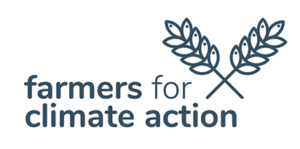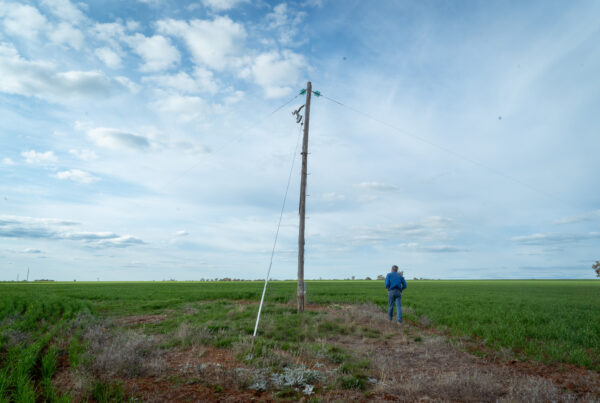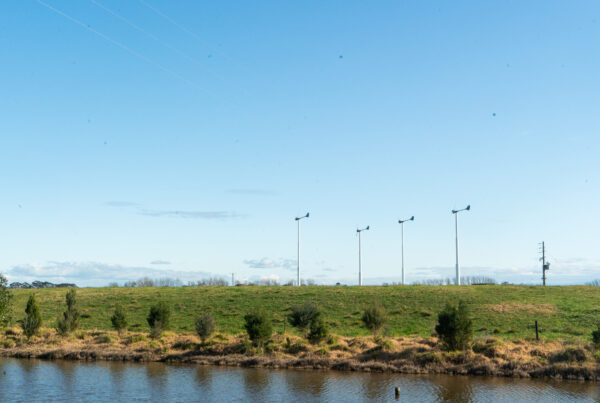25 January 2024
The Hon Stephen Jones MP
Assistant Treasurer
Dear Assistant Treasurer,
RE: Farmers for Climate Action 2024-25 Pre-Budget Submission
Farmers for Climate Action (FCA) thanks you for the opportunity to provide a submission for the 2024-25 Budget.
FCA represents farmers, agricultural leaders and rural Australians who want to see Australia adopt strong climate policies. We represent more than 8,000 farmers across Australia, and a further 45,000 supporters committed to reducing emissions across the economy.
FCA is pleased to submit nine recommendations for the 2024-2025 Federal Budget. These recommendations are supported by crucial insights from our community of Australian farmers, published in our reports Farming Forever, Farm Powered, Renewables on farm survey insights and, most recently, A Survey of Australian Agricultural Perspectives on a Path to Net Zero.
This recent survey was distributed through our own and the National Farmers’ Federation’s social media and completed by more than 500 farmers and 150 members of the agricultural value chain. The survey provides a robust dataset that reflects Australian agriculture by region and commodity as defined by the ABS.
More than 92% of respondents report that they have witnessed changes in seasonal conditions and climate-related on-farm impacts over the past three years: these include more severe droughts, floods, fires, storms, and pests, and lead to consequences including lower farm productivity and higher insurance costs. Our survey also found that 71% of farmers have already invested in on-farm emissions reduction measures on farm, while 64% of farmers plan to invest in future or additional emissions reductions measures in the next five years.
Farmers feed, sustain and clothe the nation, and generate significant export revenue. Despite this, previous federal budgets have not invested sufficiently in decarbonising and future-proofing the agricultural sector so it can remain resilient and competitive in the coming decades. We emphasise the critical need for this budget to meet the evolving needs of our farming communities, who are already facing increasingly frequent droughts, floods and fires. It is crucial that the government’s policy and budgetary choices protect Australia’s food supply, continue to sustain regional communities, bolster the domestic economy, and ensure a bright future for farming in Australia.
Our Recommendations
Support the future of farming
1. Fund or second a Future Farming Extension Officer within Farmers for Climate Action. FCA has an active network of over 8,000 farmer members committed to on-farm practice change. Funding of $400,000 over two years for a Future Farming Extension Officer, or the secondment of one extension officer at Assistant Director level from within the Department of Agriculture, Fisheries and Forestry, would give FCA the capacity to:
○ connect farmers across the country with new research and tools for climate smart farming
○ provide advice, support and connect farmer participants to pilot programs aimed at bringing new tools and technologies to market more quickly
○ connect farmers with existing local services, programs and information sources such as Landcare, local drought hubs, universities, Rural Research and Development Corporations and farmer case studies to support farmers to move more confidently and quickly towards decarbonisation, improve resilience, and maintain or grow productivity and profitability.
2. Fund research, development and early adoption of innovative solutions to reduce agricultural emissions. Through our surveys and research we have identified the following technologies that could play a significant role in decarbonisation of the agriculture sector but require government investment to accelerate research and development and drive early adoption:
○ Premise-based renewables and farm electrification
○ Fuel alternatives
○ Technologies to reduce enteric methane emissions
○ Farm-solar (agrivoltaics)
3. Allocate $12m over two years to pilot six Energy Knowledge Hubs. Energy Knowledge Hubs will act as a central, local source of truth and help combat misinformation by employing trusted local experts to convey information on local renewables and transmission projects, home and farm electrification, electric vehicles, etc. We estimate that Energy Knowledge Hubs could be delivered for around $1M per year per hub, and propose that pilot Energy Knowledge Hubs be located in areas that host large-scale renewables
projects: for example the Illawarra, Hunter-Central Coast, New England, Central Queensland, the Latrobe Valley, and Kwinana.
4. Fund a Commonwealth agency or organisation to improve community engagement and benefit sharing for renewable energy and transmission projects. The chosen agency or organisation should be tasked with reviewing, designing and making recommendations for:
○ An updated, streamlined and coordinated community engagement processes that involves Federal, State and Local Governments and reduces duplication
○ Improved benefit sharing arrangements for host communities, including higher annual payments to hosts, payments to impacted neighbours, and funding for community benefit programs.
○ A new code of conduct for community and stakeholder engagement for new renewable energy projects, which developers will be expected to follow to participate in government auctions and tenders.
5. Fund the industry-wide adoption of an on-farm emissions calculator. An agreed national methodology for calculating on-farm emissions is a necessary precursor to understanding and measuring emissions reduction. The Government should allocate funds to ensure the widespread adoption and implementation of Agricultural Innovation Australia’s Environmental Accounting Platform, which has been developed with support from leading Regional Research and Development Corporations. The Environmental Accounting Platform is designed to meet the critical need for a centralised, standardised and user-friendly tool to streamline the process of environmental accounting.
Support farmers to reduce on-farm emissions
6. Reduce the up-front capital costs for solar, storage and EVs. Key emissions reduction technologies including solar power, battery storage and electric vehicles incur significant up-front costs that are beyond the reach of many farmers. Support to reduce capital costs through subsidies, rebates, tax credits and/or low-interest loans would reduce pay-back periods and allow more farmers to invest in on-farm renewables and storage.
7. Incentivise farmers to adopt innovative technologies that may be essential to the future of farming. Emerging technologies to reduce methane, carbon and nitrous oxide emissions on farms are promising but are currently cost-prohibitive. Government support for early uptake would help farmers trial these technologies, build an evidence base, expand local markets and encourage local supply chains. Incentives to adopt emerging technologies could be delivered as rebates, subsidies, tax credits or through an instant tax asset write-off program.
Make electricity networks fairer for farmers and regional communities
8. Invest in electricity distribution networks to ensure they are working for rural and regional communities. Our Farm Powered report outlines issues with electricity distribution networks that prevent farmers from benefiting from renewable energy, such as Single Wire Earth Return power networks, export limits for mid-sized renewable energy installations, and restrictions on sharing renewable energy across multiple lots. Key to resolving these issues and improving energy equity for regional communities is updating the Australian Energy Regulator’s rules to move away from the current population density-based calculations for prioritising electricity network upgrades. Under the current rules rural and regional areas with low population density often miss out on essential upgrades.
9. Fund the development of a National Energy Equity Strategy. The strategy should ensure that current generational upgrade to Australia’s energy systems improve equity and deliver benefits to all Australians.
Farmers for Climate Action would welcome the opportunity to work with Treasury and DAFF to cost and implement each of these recommendations.
We also reiterate our support for the immediate introduction of robust fuel efficiency standards, the centrepiece commitment of the National EV Strategy launched in April 2023. This policy will enable access to cleaner and more affordable vehicles for all Australians, including farmers, who currently suffer from a lack of suitable electric vehicles such as utes and four wheel drives.
If we act quickly on climate change, there are huge economic opportunities for farmers and regional Australians. Let’s not miss the opportunity to invest in secure, resilient jobs and livelihoods for farmers and regional Australians.
Thank you for the opportunity to provide input to the 2024-2025 budget process. Please don’t hesitate to contact me for more information or to discuss this submission further.
Yours sincerely,
Natalie Collard
CEO, Farmers for Climate Action
Email: [email protected]
Phone: 1800 491 633







